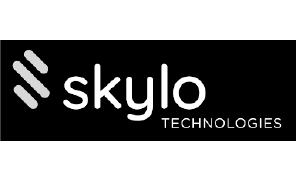A modern, JVM-based, full-stack framework for building modular, easily testable microservice and serverless applications
Reimagine startup time
and memory consumption
The Micronaut way
Your application startup time and memory consumption aren’t bound to the size of your codebase, resulting in a monumental leap in startup time, blazing fast throughput, and a minimal memory footprint.
The old way
When building applications with reflection-based IoC frameworks, the framework loads and caches reflection data for every bean in the application context.
Key
Features
Polyglot Framework
Compatible with Java, Groovy, and Kotlin
Natively Cloud-Native
Built-in cloud support including discovery services, distributed tracing, and cloud runtimes
Fast Data-Access Config
Quick configuration of your favorite data-access layer and the APIs to write your own
Smooth Learning Curve
Realize benefits quickly by using familiar annotations in the way you are used to
Fast, Easy Unit Testing
Easily spin up servers and clients in your unit tests and run them instantaneously
Aspect-Oriented API
Provides a simple, compile-time, aspect-oriented programming API that does not use reflection
Seamless API Visibility
With support for OpenAPI and Swagger, your consumers will have everything they need to integrate with your services
AOT Compilation
Keeps your startup time and memory footprint low by doing the heavy lifting up-front
Micronaut success stories
See how Micronaut users are achieving awesome results with the Micronaut framework.
Non-Blocking HTTP Server Based on Netty
import io.micronaut.http.annotation.*;
import java.util.Collections;
import java.util.Map;
@Controller("/hello")
class HelloController {
@Get
Map index() {
return Collections.singletonMap("message",
"Hello World");
}
} Declarative, Reactive, Compile-Time HTTP Client
import io.micronaut.http.annotation.Get;
import io.micronaut.http.client.annotation.Client;
import reactor.core.publisher.Mono;
@Client("/hello")
public interface HelloClient {
@Get
Mono hello();
} Fast and Easy Testing
import io.micronaut.test.extensions.junit5.annotation.MicronautTest;
import org.junit.jupiter.api.Test;
import static org.junit.jupiter.api.Assertions.*;
@MicronautTest
class HelloControllerTest {
@Test
void testHelloWorldResponse(HelloClient client) {
assertEquals("{\"message\":\"Hello World\"}",
client.hello().block());
}
}Natively Cloud Native
The Micronaut framework’s cloud support is built right in, including support for common discovery services, distributed tracing tools, and cloud runtimes.






Micronaut Apps start up in tens of milliseconds
with GraalVM
GraalVM is a new universal virtual machine from Oracle that supports a polyglot runtime environment and the ability to compile Java applications down to native machine code.
The Micronaut framework features a dependency injection and aspect-oriented programming runtime that uses no reflection. This makes it easier for Micronaut applications to run on GraalVM. Learn more
Works Hand-In-Hand with
Micronaut Data
Micronaut Data is a productivity-boosting open source technology that dramatically improves runtime and memory performance of data access repository logic for the microservice and serverless era.








